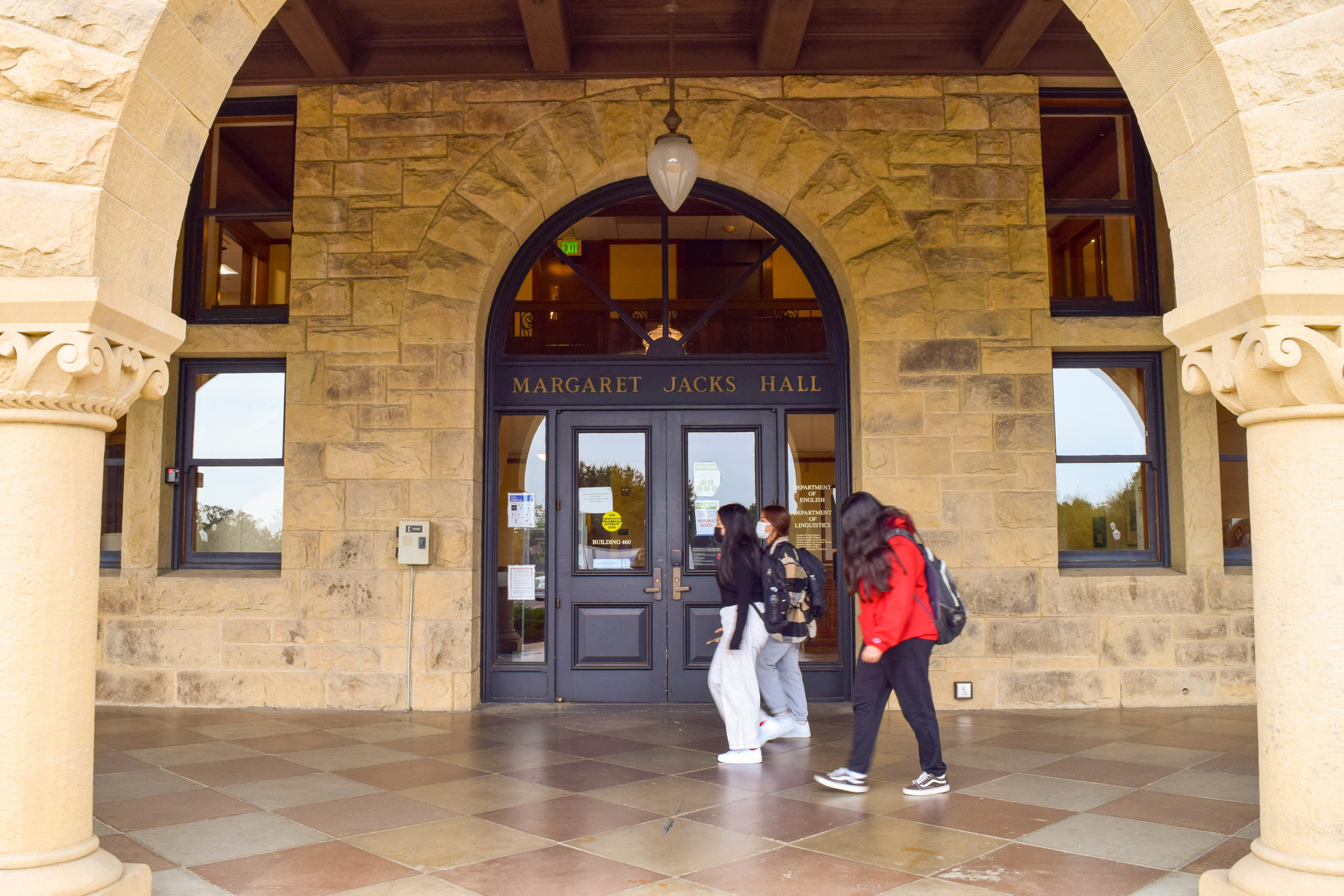“It’s okay, you can make a lot of noise if you want!” said poet Joseph Rios as he encouraged the audience of the first Stegner Fellow reading of the 2023-2024 academic year. The event, which featured first-year fellows Joseph Rios and Hassaan Mirza, brought both tears and laughter to its audience.
Both writers employed humor in reflective personal pieces that paid homage to their US cities of residence — Fresno, California and Cincinnati, Ohio. Mirza is originally from Lahore, Pakistan.
The reading began with pieces by poet Rios, Fresno’s 2023 Poet Laureate and winner of the American Book Award. Rios opened with a nod to the past, reciting a poem from his book “Shadowboxing and Other Impersonations.” The poem, titled “Curse of the San Joaquin Valley,” paid homage to a past Stegner Fellow and fellow Fresno resident, Victor Martinez ‘79.
Rios explores the city as a once-lush valley now choked by smoke, concrete and carcinogens. Protagonist Josefo and his fast friend Victor Martinez marvel at “the look of the San Joaquin valley before the dams and the canals / the wildlife the marshland the tabletop mountains the seashells / still coating the Valley floor.” The poem ends when Victor Martinez dies by way of lung cancer, showing Rios’ grief for the landscape and lives that the valley has lost to industrialization and big agriculture.
He continued with a poem about his late friend “Doña” Michelle Cerros, becoming emotional when eulogizing her in a not-quite-ode that started, “This could have been an ode / to your fur coat / to your gold shoes stuck in the mud outside Salinas.”
When the writers were asked how their respective hometowns informed their pieces, Rios said that his love for his hometown motivated him to write, and that showing his work to his family, while terrifying, set him free.
But Mirza noted that he resented the question because “sometimes that question gets asked of writers from other countries so much, and that’s the first question that’s asked.” He noted that while he felt nostalgia outside of the page, when he wrote about Lahore, Pakistan, it was usually from a place of pain and anger.
Mirza instead shared poems honoring his US city of residence, where he is also currently pursuing a Ph.D. in Creative Writing at the University of Cincinnati. The magazine-published poet read an unfinished short story entitled “Name, Place, Animal, Thing,” which follows “a white lady married to a Pakistani man who lives in Cincinnati, next to the Cincinnati zoo.” His story brought themes that first seemed unrelated — such as bonobo intercourse and COVID — yet by the end made up a riveting storyline.
In Mirza’s story, the narrator slowly reveals her identity to the reader, recounting first her seven daughters with her Pakistani husband. She then unravels the relationship between her and her mother-in-law, Ammaji, who can only share fragments of conversation due to a language barrier. Made both comical and vulgar by Mirza, their dialogue showed the stilted natures of two people who cared equally about their shared family, but could never quite reconcile their different backgrounds.
But the most strained relationship in Mirza’s story concerned one of the narrator’s daughters, who returns to live at home during the pandemic and grapples with her biracial identity by lashing out at her white mom. Mirza explores this complex dynamic in an unlikely way — through images of two bonobos having intercourse at the Cincinnati zoo, in the middle of the pandemic.
The narrator, watching the bonobos because she can’t stand to go and socially distance from her husband, muses: “Were they making a mockery of us, rejoicing our long-awaited demise? Or were they totally indifferent to our plight?”
Indeed, the pandemic itself represents a time when, amongst such tragedy, many of us were left with nothing to do but face the conflicted realities of family.
Both writers agreed humor allowed them to approach these difficult topics from an easier angle. Rios, who had previously applied to the Stegner Fellowship before being accepted in this round, read his uproarious initial personal statement: “Please provide an introduction to your work, 250 words / Response / My poetry comes from a big water truck / bouncing and exhaling smoke over dry molds of wheel marks made by other trucks that pass the same way.”
The crowd — particularly the English department faculty and Stegner Fellow admin — laughed immediately. Rios continued, “This is the poetry of a man / in the passenger seat of said truck / He’s trying to light a cigarette amidst all the vibrations / and the damn truck keeps moving.”
